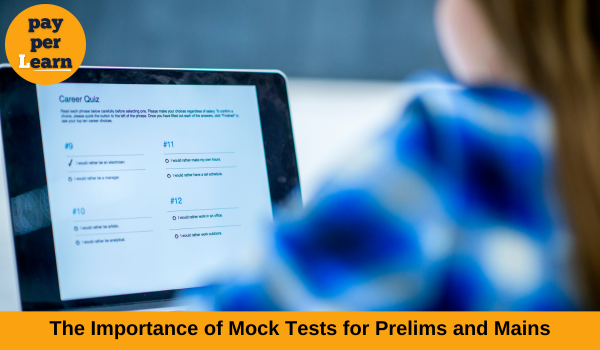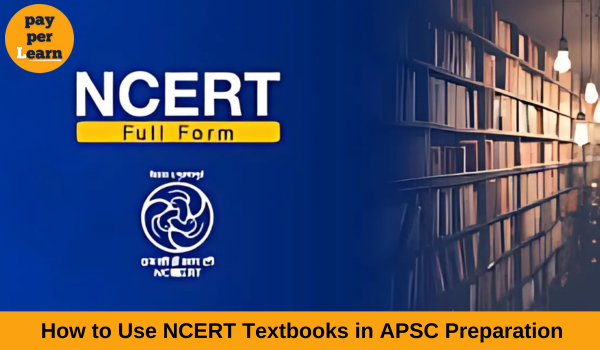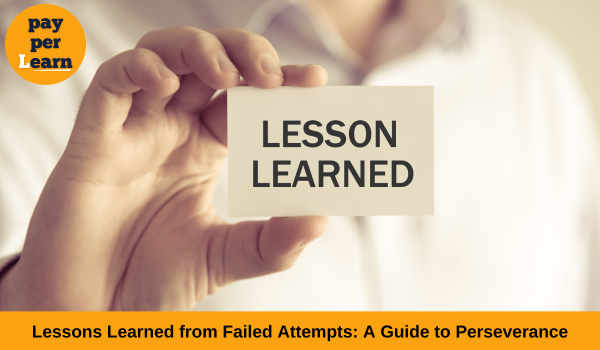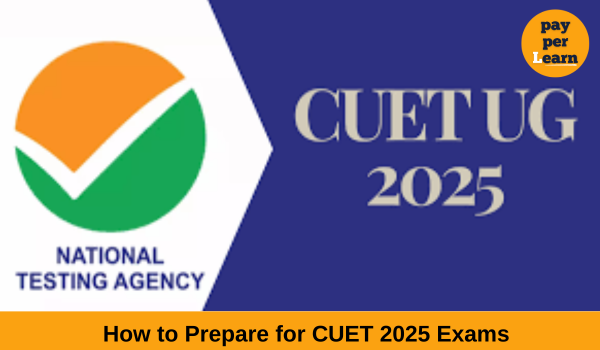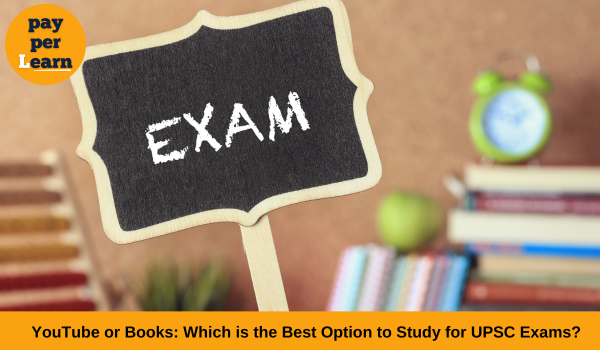Mock tests have become an indispensable part of any successful preparation strategy for competitive exams, be it Prelims or Mains.
How Important Are Current Affairs? How Can One Prepare for Them?
In today’s fast-paced world, staying updated with current affairs is no longer optional; it is a necessity. Whether you are a student preparing for competitive exams, a professional aiming to stay informed, or simply an individual wanting to engage in meaningful conversations, current affairs play a pivotal role in shaping your knowledge and perspective.
How to Use NCERT Textbooks in APSC Preparation
The Assam Public Service Commission (APSC) exam is a highly competitive test that demands a strong grasp of foundational concepts across a wide range of subjects… Read More…
How to Prepare for CUET 2025 Exams
The Common University Entrance Test (CUET) is a gateway for students seeking admission to top central universities in India. As CUET continues to gain prominence, preparing strategically for the 2025 exams is essential for success. This blog will provide you with actionable tips and strategies to ace CUET 2025, ensuring you stand out among thousands of aspirants.
1. Understand the CUET 2025 Exam Pattern
Before starting your preparation, familiarize yourself with the exam pattern. The CUET typically includes:
- Sections:
- Language Proficiency (English/Hindi or regional languages)
- Subject-Specific Tests
- General Test (includes quantitative aptitude, reasoning, and general knowledge)
- Marking Scheme: Be aware of negative marking for incorrect answers and allocate time accordingly during the exam.
- Duration: Each section has a specific time limit, requiring effective time management.
2. Create a Study Plan
An organized study plan tailored to your strengths and weaknesses will ensure effective preparation. Include:
- Daily Targets: Allocate specific hours to language, subject-specific, and general knowledge sections.
- Weekly Revisions: Consolidate your learning through regular revisions.
- Mock Tests: Incorporate CUET-specific mock tests to simulate real exam conditions and improve your speed and accuracy.
3. Focus on Key Sections
Language Proficiency
- Enhance your reading skills by practicing comprehension passages.
- Build your vocabulary through daily reading of newspapers and word lists.
- Work on grammar and sentence correction exercises.
Subject-Specific Preparation
- Refer to NCERT books for a strong foundation.
- Solve previous years’ question papers for an understanding of the question pattern.
- Use advanced reference books for in-depth understanding and practice.
General Test
- Strengthen your quantitative aptitude with topics like percentages, profit & loss, and data interpretation.
- Practice logical reasoning puzzles and previous year’s questions.
- Stay updated on current affairs, static GK, and important events.
4. Leverage Online Resources
Explore platforms like Pay Per Learn for topic-specific lessons, quizzes, and study material. Their unique pay-as-you-go model ensures flexibility and access to high-quality content without financial strain. Make the most of such resources for targeted preparation.
5. Regular Practice Through Mock Tests
Mock tests are a critical part of CUET preparation. They help you:
- Identify strengths and weaknesses.
- Improve time management and accuracy.
- Build confidence for the actual exam.
Analyze your performance after each mock test and work on areas needing improvement.
6. Time Management During the Exam
Effective time management can make or break your performance. Follow these tips:
- Prioritize sections based on your strengths.
- Avoid spending excessive time on difficult questions.
- Keep a close watch on the timer to ensure all sections are attempted.
7. Take Care of Your Health
A healthy mind resides in a healthy body. Ensure:
- Adequate Sleep: Get 7-8 hours of sleep daily to stay refreshed.
- Balanced Diet: Include nutritious food to maintain energy levels.
- Regular Exercise: Engage in light physical activities or yoga to relieve stress.
8. Stay Motivated and Positive
- Set achievable goals to stay motivated.
- Surround yourself with supportive peers and mentors.
- Practice mindfulness techniques to reduce anxiety.
Conclusion
Preparing for CUET 2025 requires a blend of strategic planning, consistent effort, and the right resources. Platforms like Pay Per Learn offer tailored solutions to meet your preparation needs. With dedication and the right approach, success in CUET 2025 is well within your reach. Start today and stay ahead of the competition!
YouTube or Books: Which is the Best Option to Study for UPSC Exams?
Preparing for the UPSC exam is a journey of dedication, strategy, and effective resource management. Aspirants often face a dilemma when choosing their primary mode of study: Should they rely on traditional books, or can YouTube serve as an equally effective learning platform? This blog aims to answer this pressing question and help you strike the right balance.
The Case for Books in UPSC Preparation
- Books have been the cornerstone of UPSC preparation for decades. Here are some reasons why they remain indispensable:
- Comprehensive Content: Standard books like NCERTs, Laxmikanth for Polity, and Spectrum for Modern History provide in-depth and structured knowledge essential for UPSC.
- Exam-Oriented Approach: Books are often aligned with the UPSC syllabus, ensuring that aspirants stay focused on relevant topics.
- Reliability: Authored by experts and reviewed rigorously, books offer accurate and credible information.
- Offline Accessibility: Unlike digital platforms, books don’t require internet connectivity, making them ideal for uninterrupted study sessions.
The Case for YouTube in UPSC Preparation
- The rise of digital platforms like YouTube has revolutionized the way aspirants prepare for competitive exams. Here’s why YouTube is a game-changer:
- Visual Learning: Complex concepts are easier to grasp through videos and animations, making topics like Geography and Science engaging and understandable.
- Updated Content: Channels like Pay Per Learn provide updated content, including current affairs, which are critical for UPSC preparation.
- Accessibility: You can access lectures, doubt-solving sessions, and revision videos anytime, anywhere.
- Cost-Effective: Many YouTube channels offer free or affordable courses, reducing the financial burden of preparation.
- Expert Guidance: Platforms like Pay Per Learn feature lectures by seasoned educators and subject matter experts, ensuring high-quality content.
- Balancing Books and YouTube for UPSC Success
- Both books and YouTube have their strengths, and the key to success lies in leveraging the best of both worlds. Here’s how you can do it:
- Foundation with Books:
Start your preparation with standard books to build a solid foundation. Use books for static subjects like History, Polity, and Geography. - Supplement with YouTube:
- Use YouTube channels like Pay Per Learn for current affairs, interview tips, and visual explanations of difficult concepts.
- Follow specific playlists or series tailored to UPSC topics.
- Revision and Practice:
- Combine book-based notes with video summaries for efficient revision.
- Practice mock tests and past papers available on digital platforms.
- Time Management:
Allocate time wisely between reading books and watching videos to avoid over-reliance on one source.
Why Choose Pay Per Learn?
Pay Per Learn is a trusted platform for UPSC aspirants, offering a wide range of resources to complement your preparation. Their YouTube channel features: Expert-led lectures on critical UPSC topics. Comprehensive current affairs analysis. Tips and strategies for Prelims, Mains, and Interviews. Interactive sessions to clarify doubts. Subscribing to the Pay Per Learn YouTube channel can give you an edge in your preparation while saving time and money.
Conclusion
In the debate between YouTube and books for UPSC preparation, the winner depends on how you utilize these resources. Books provide a structured and reliable foundation, while YouTube adds the flexibility and visual appeal needed for modern-day learning. By integrating both effectively, and with platforms like Pay Per Learn, you can chart a successful path to cracking the UPSC exam.
Start your journey today and let Pay Per Learn guide you to success!

